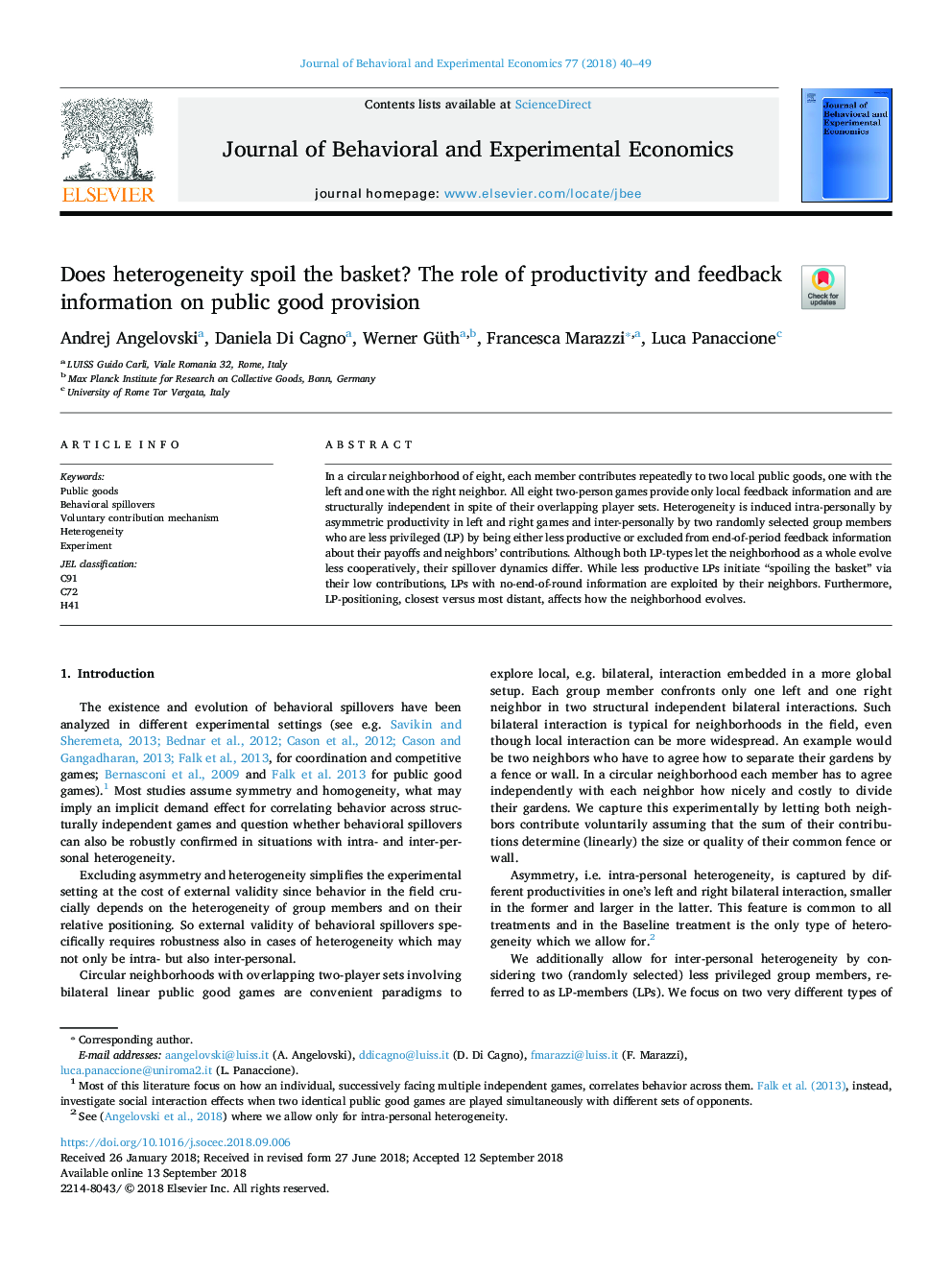| Article ID | Journal | Published Year | Pages | File Type |
|---|---|---|---|---|
| 11023472 | Journal of Behavioral and Experimental Economics | 2018 | 10 Pages |
Abstract
In a circular neighborhood of eight, each member contributes repeatedly to two local public goods, one with the left and one with the right neighbor. All eight two-person games provide only local feedback information and are structurally independent in spite of their overlapping player sets. Heterogeneity is induced intra-personally by asymmetric productivity in left and right games and inter-personally by two randomly selected group members who are less privileged (LP) by being either less productive or excluded from end-of-period feedback information about their payoffs and neighbors' contributions. Although both LP-types let the neighborhood as a whole evolve less cooperatively, their spillover dynamics differ. While less productive LPs initiate “spoiling the basket” via their low contributions, LPs with no-end-of-round information are exploited by their neighbors. Furthermore, LP-positioning, closest versus most distant, affects how the neighborhood evolves.
Keywords
Related Topics
Social Sciences and Humanities
Economics, Econometrics and Finance
Economics and Econometrics
Authors
Andrej Angelovski, Daniela Di Cagno, Werner Güth, Francesca Marazzi, Luca Panaccione,
